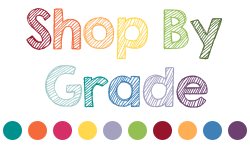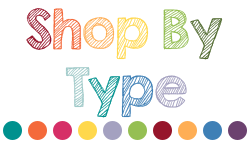

People think I’m crazy when I tell them that my favorite students to work with are those with Oppositional Defiant Disorder, but I’ll tell you why! As a child, I sent my parents through the ringer – I tested limits, insisted on doing things my own way, and generally defied most types of authority they gave me. So, I often see a lot of myself in these kids! Also, these kids have often had very negative school experiences in the past and you have a huge ability to make a difference in their lives. What an opportunity!
Here are some things I’ve heard from “difficult and defiant” students in the past:
– “Maybe if I’m so mean to this sub, she’ll never come back.”
– “But SHE never respects me!”
– “If I never do what I’m supposed to, it’ll irritate him!”
– “Maybe if I can get the teacher to lose control again it’ll show everyone else how crazy they are.”
You’ll notice there is one thing connecting each of these thoughts: POWER. That being said, the best way to get defiant kids to do what you want them to is to give them some! Below are some tips from the kids’ view for helping increase positive interactions in the classroom. These strategies can be used at home with headstrong kids too!
TELL US WHY
Arbitrary rules of “because I said so,” or “because it’s my job to _____” only make us feel like we have even less power in the situation. Instead of “stop talking,” tell us that other kids are having a hard time getting work done because we’re talking. Kids’ brains aren’t wired to think outside of themselves yet. We don’t always think about how our actions affect others. Sorry!
AGREE UPON THE EXPECTATIONS
Notice I said “agree upon.” Expecting kids to blindly follow your rules because it’s the rules and because it’s what you have to do at school is only going to make headstrong kids feel less powerful. Instead, sit down and negotiate the “terms.” It makes me feel like I’m an important part of the team. Often, we kids do understand that rules are in place for a reason. The issue comes when we feel as though we had no role in helping come up with them. So include us! You teachers got to help write a contract for your job, right?!
– Write a contract to address expectations for all people involved
– How will we address disputes on behalf of both sides?
– Sign the contract (both parties)
LET US CHOOSE
As often as you can, let us pick the order we will do things or how we will do them. Kids like having control over their time and environments as much as adults do! Give us choices for free time; let us decide if we want to work in groups or work alone; let us choose how to show you what we’ve learned when you can. I’ve heard this is just good teaching because not all kids have the same interest and talents. Imagine if your boss came in and told you every day when and how you would do everything. Yuck!
BE SPECIFIC
Rules such as “be respectful” is SO vague. Plus, I guarantee you there will be times when I feel like I’m not being respectful by adults at school (teachers don’t always respond appropriately 100% of the time, right!?) Instead, try rules like “We keep our hands and feet to ourselves,” “We sit in our desks by the time the bell rings,” or “We work quietly during work time,” “We use a respectful tone of voice,” etc. This is why PBIS schools break down their school-wide expectations into smaller, more objective expectations for each area in the school. Respect may look very different in the classroom compared to on the playground.
BE CONSISTENT
How can we possibly feel comfortable letting you have power over us when we have no idea what to expect from you? One day you let us do one thing, the next day you don’t. If we don’t know what to expect, we feel like we have to take things into our own hands to feel comfortable. Don’t make us do that. Just do what you say you will.
PICK YOUR BATTLES
How would you feel if your boss constantly told you about every little thing you did wrong? Yeah…so please don’t do it to us either. It makes us feel like you’re intentionally trying to “catch” us doing things wrong, which makes us want to prove to our classmates how unrealistic and ridiculous you are.
STOP TALKING
If we break the rules, don’t talk and talk and talk at us. Tell us what’s wrong in as few words as possible and move on with it. It drives us crazy when you sit there and nag at us. Seriously, we GET IT. We’re not stupid. Deliver the consequence in the contract and STOP TALKING! The worst is when you say, “How many times do I have to tell you….” I mean, do you want us to answer, because we will. You’re just making yourself look silly now.
LET ME SAVE FACE
Contrary to common belief, headstrong kids and those with ODD usually DO care what people think. So, making passive-aggressive comments to us in front of our classmates or informing everyone in a 2-mile radius how many points we earned on our daily chart when an adult comes to check us out will just make us trust you less. How can we trust you if you’re going to use your power to embarrass us? If we violate the contract, tell us quietly and in private.
USE HUMOR
We like funny things too. And when you make light of a situation rather than using it to assert your dominance, it makes me feel better. So instead of, “How many times have I told you to stop running,” try “Hey bud! The floors are wet and I don’t want to have to pick up squished pieces of you off the floor. It’d be messy!” It puts the picture in my head of you picking up pieces of me on the floor, which is funny and puts the focus on YOU and the situation rather than on just on ME.
APOLOGIZE
Here’s a huge way to gain my respect: apologize when you’re wrong. We know not everyone is perfect. But honestly, why do adults get to be “unquestioningly right” all the time and kids don’t? When you make a mistake, own it and move on. It happens. We get it.
BE ON MY TEAM
Above all, it boils down to making me feel like you’re on my team. So with everything you do, think about you and I working together against the world. It’s a little dramatic, but it might help you see a little what it feels like to be me sometimes.
One last point (from the headstrong adult): Defiant kids or those with ODD are not “destined” to be criminals as adults. We can’t know which of our students are going to succeed. Defiant people have fought revolutions, marched for civil rights, started businesses, and molded the world we live in. If those before us simply accepted everything as it was, many of the rights and privileges we enjoy today would not be available to us. Be thankful for the defiant people in your life and don’t write off your difficult kids; just figure out ways to harness their “power” for good!











